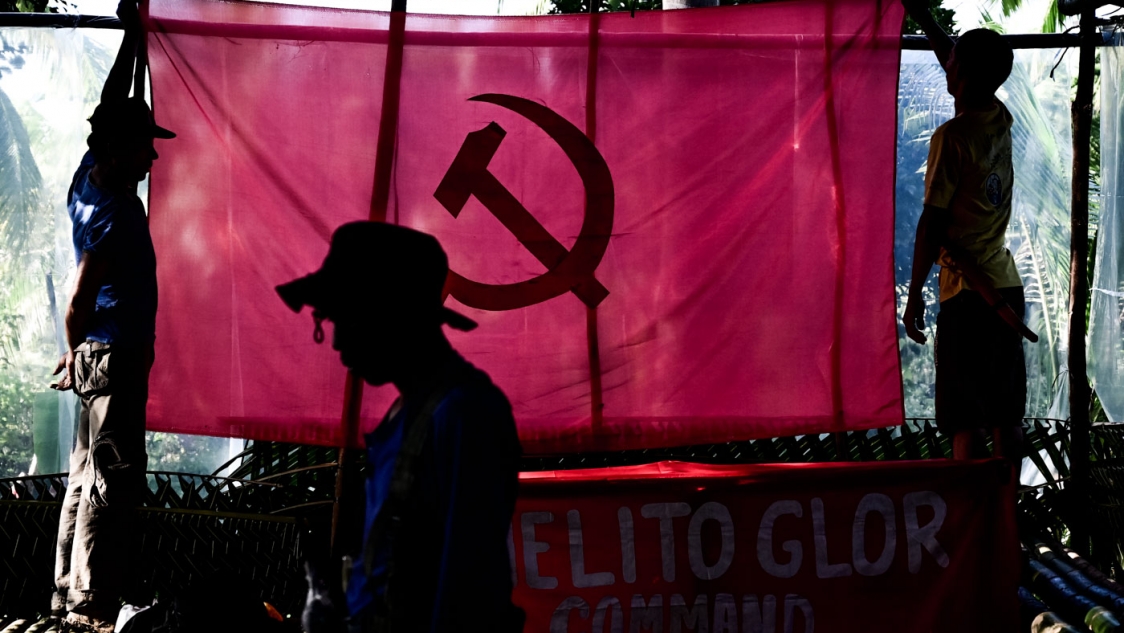
'You can imagine the political favors that can be done out of this system,' says Senate Minority Leader Franklin Drilon, alarmed over the anti-communist task force being involved in funds for barangays
Senate Minority Leader Franklin Drilon called out the Department of Budget and Management (DBM) for allocating the proposed P16.4-billion barangay development fund to the anti-communist task force, saying this could be used for political purposes in 2021.
The next national elections will be in 2022, but funds for poll preparations are already included in the 2021 budget.
"Let's be candid. Next year is an election [budget] year and here is a secretariat who will be playing God to the requests of the barangays. I am being candid with you. I am not new in this bureaucracy," said Drilon on Wednesday, September 9, the first day of budget deliberations at the Senate.
The development fund is seen to prevent communist armed conflict through agricultural, infrastructure, and livelihood projects, among others, in insurgency-free barangays.
The fund is lodged under the P28.83-billion Local Government Support Fund (LGSF), which has been used in the past years to provide project funding to cities and municipalities, granted that they have the interior department's seal of good housekeeping.
Next year, more than half of the LGSF would go to the barangay development program of the National Task Force on Ending Local Communist Armed Conflict (NTF-ELCAC).
"I call a spade a spade. You have an agency, not a regular line agency, just somebody who will be approving and disapproving barangay requests for funding. You can imagine the political favors that can be done out of this system, when in fact, there are regular agencies that can do it," added Drilon.
In his defense, Budget Secretary Wendel Avisado told the panel that the NTF-ELCAC is only the repository of the projects and that the fund would be directly disbursed to local government units (LGUs).
"We act on what we are mandated to do. This is pursuant to Executive Order [No. 70] of the President. What we're looking here is precisely just to make sure that the intent and purpose of the EO is followed," he said.
Avisado also cited the Mandanas ruling on higher internal revenue allotment for LGUs – a decision that economic managers themselves previously warned would cause an unmanageable fiscal deficit if carried out sooner. The ruling will not take effect until 2022.
"The funds do not pass by the NTF-ELCAC. The funds for the program and projects are released directly to the LGUs as part of the capacity building. In line also with the mandate of the Supreme Court, the Mandanas decision," the budget chief said.
But what Avisado failed to mention was that the anti-communist task force would approve which barangays will be eligible to apply for the fund.
Rappler reported that the barangays must first secure a certification from the NTF-ELCAC that they are cleared of insurgency, based on the criteria that the task force will set.
Despite the discretion, retired generals in the Cabinet dismissed concerns that the fund would be used for political purposes.
The next national elections will be in 2022, but funds for poll preparations are already included in the 2021 budget.
"Let's be candid. Next year is an election [budget] year and here is a secretariat who will be playing God to the requests of the barangays. I am being candid with you. I am not new in this bureaucracy," said Drilon on Wednesday, September 9, the first day of budget deliberations at the Senate.
The development fund is seen to prevent communist armed conflict through agricultural, infrastructure, and livelihood projects, among others, in insurgency-free barangays.
The fund is lodged under the P28.83-billion Local Government Support Fund (LGSF), which has been used in the past years to provide project funding to cities and municipalities, granted that they have the interior department's seal of good housekeeping.
Next year, more than half of the LGSF would go to the barangay development program of the National Task Force on Ending Local Communist Armed Conflict (NTF-ELCAC).
"I call a spade a spade. You have an agency, not a regular line agency, just somebody who will be approving and disapproving barangay requests for funding. You can imagine the political favors that can be done out of this system, when in fact, there are regular agencies that can do it," added Drilon.
In his defense, Budget Secretary Wendel Avisado told the panel that the NTF-ELCAC is only the repository of the projects and that the fund would be directly disbursed to local government units (LGUs).
"We act on what we are mandated to do. This is pursuant to Executive Order [No. 70] of the President. What we're looking here is precisely just to make sure that the intent and purpose of the EO is followed," he said.
Avisado also cited the Mandanas ruling on higher internal revenue allotment for LGUs – a decision that economic managers themselves previously warned would cause an unmanageable fiscal deficit if carried out sooner. The ruling will not take effect until 2022.
"The funds do not pass by the NTF-ELCAC. The funds for the program and projects are released directly to the LGUs as part of the capacity building. In line also with the mandate of the Supreme Court, the Mandanas decision," the budget chief said.
But what Avisado failed to mention was that the anti-communist task force would approve which barangays will be eligible to apply for the fund.
Rappler reported that the barangays must first secure a certification from the NTF-ELCAC that they are cleared of insurgency, based on the criteria that the task force will set.
Despite the discretion, retired generals in the Cabinet dismissed concerns that the fund would be used for political purposes.
https://rappler.com/nation/drilon-says-anti-communist-task-force-play-god-development-budget

No comments:
Post a Comment
Note: Only a member of this blog may post a comment.